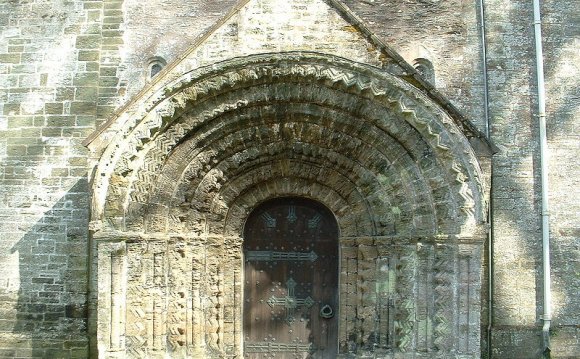
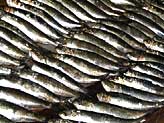 Considerable information on Cornwall's wealthy industrial record from fishing to mining to tourism
Considerable information on Cornwall's wealthy industrial record from fishing to mining to tourism
Becoming the far-flung western spot associated with Brit Isles, Cornwall's isolation from other countries in the country has long been a mixed blessing as well as its professional history isn't any exception. No history of size make here, and only because the arrival for the Internet and length working have some of the country's intellectual stock brought their work down in earnest. Cornwall's business features constantly stemmed from its natural environment, be your useful the land, either in terms of plants or mineral lodes, and/or sea. As a result it has undoubtedly for ages been vulnerable to the peaks and troughs that such sectors knowledge. Even now, as tourism firmly takes the helm of Cornish earnings, it will be the shoreline plus the moderate environment which draw the people and, therefore, the funds.
With a hotter weather than much of the British Isles, farming has always enjoyed an important role in Cornwall. But with regards to industry, various other sectors have actually typically had more impact. The Cornish have actually mined and exchanged tin since ahead of the arrival of Angles and Saxons, though before final couple of 100 years this is mainly minor area extraction, and it goes without saying that fishing has actually always been around.
Pilchards
Around 1700, mining's contribution to your Cornish economy had been equalled by trade-in salted pilchards. 'Hevva Hevva' had been the weep alerting regional fishermen to these gigantic shoals and 'huers' would direct the ships on seafood from their cliff-top location. Caught utilizing the seine strategy, involving many boats holding a big web and producing a circle which was then closed to fully capture the fish, pilchards introduced wide range to numerous a Cornish seaside town, and were mainly offered overseas to nations eg Italy and Spain. Such exports had been celebrated in Cornish ditty:
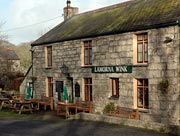 Here's into the health regarding the Pope
Here's into the health regarding the Pope
That can he repent
And lengthen half a year
The word of their Lent
It's always declared
Betwixt the 2 poles
There's nothing like pilchards
For saving of souls
But Cornwall's professional heyday began utilizing the dawn associated with chronilogical age of steam; the huge machines very first manufactured by Boulton & Watt enabling underground shafts become dug much deeper and held dried out. Such innovation brought not only success to your established population, but also newcomers keen to take advantage of the brand new employment chance. Money ended up being truly made, but small trickled down to the frontline workers as the pouches for the mine proprietors had been becoming richly lined. Numerous households found by themselves pursuing more income elsewhere and, for the eighteenth century and past, smuggling, along side its favoured accomplice wrecking, ended up being rife within the main world.
Smuggling
Because of the number of seafaring traffic surrounding this slim strip of land, wrecking would have been an obvious temptation. Concerning lighting lights to deliver false signals to vessels, and thus causing them to guide erroneously in to the treacherous rugged coastline, wrecking reputedly delivered numerous a ship and staff to Davy Jones' locker whereupon regional gangs would waste virtually no time in assisting by themselves to whatever products were on board.
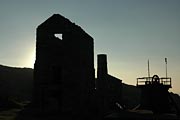 Smuggling by itself affected the entire Uk Isles, but Cornwall's place, separation and geography of concealed coves caused it to be a real hotbed of task. Tunnels were dug through the shore to inns and hostelries, numerous because of the regional moniker of 'The Wink' owing to the sign fond of show the accessibility to smuggled items. A famous club with these types of a name nonetheless trades in Lamorna in western Cornwall. The Treasury, a great deal aggrieved by this aggressively effective contraband trade, create the nationwide Coast Guard specifically to fight it but ended up being finally obliged to reduce import tax when you look at the 1800s to have any impact whatsoever.
Smuggling by itself affected the entire Uk Isles, but Cornwall's place, separation and geography of concealed coves caused it to be a real hotbed of task. Tunnels were dug through the shore to inns and hostelries, numerous because of the regional moniker of 'The Wink' owing to the sign fond of show the accessibility to smuggled items. A famous club with these types of a name nonetheless trades in Lamorna in western Cornwall. The Treasury, a great deal aggrieved by this aggressively effective contraband trade, create the nationwide Coast Guard specifically to fight it but ended up being finally obliged to reduce import tax when you look at the 1800s to have any impact whatsoever.
Despite keeping numerous a wolf from home, these types of activities in addition added to an over-all standard of lawlessness and brutality between the impoverished Cornish, and it also was at such an atmosphere that in 1743 John Wesley initially found know the location which nonetheless highly associates itself with him. His model of puritan Methodism appealed to your ever-growing ranks associated with the doing work classes but rocked the motorboat of wealthy. Their preaching banned from well-known churches, Wesley took to distributing the word to outdoors congregations, most notoriously at Gwennap Pit. Wesleyan chapels mushroomed inside county along with his activity is paid with restoring an amount of legislation and order to your workers in a booming mining business.
Mining and development
Both copper and tin had been mined in this age, though the former ruled before the mid 19th century, as well as Cornwall ended up being one of the richest mining places at that moment. Gwennap, near Redruth, was famously named 'the wealthiest square mile in the world' and Dolcoath mine in Camborne produced over £1m worth of copper after which of tin.
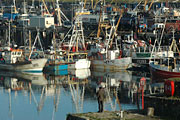 Brand new technology continued to benefit Cornish miners, especially after Watt's patents ended in 1800 therefore the road was exposed to other keen engineers. Noticably ended up being Camborne's Richard Trevithick, whose steam-propelled car predated Stevenson's Rocket by a great couple of decades, and who went on to produce the beam motor today therefore highly associated with the county. A totally operating example can certainly still be viewed at Levant my own, near St simply. However, Cornish development is not talked about without discussing a number of the various other greats, including Sir Humphry Davy of Penzance, just who invented the miner's safety lamp in 1808, and William Murdoch, who inside late eighteenth century ended up being the first ever to try out fuel for domestic lighting purposes inside the Redruth home.
Brand new technology continued to benefit Cornish miners, especially after Watt's patents ended in 1800 therefore the road was exposed to other keen engineers. Noticably ended up being Camborne's Richard Trevithick, whose steam-propelled car predated Stevenson's Rocket by a great couple of decades, and who went on to produce the beam motor today therefore highly associated with the county. A totally operating example can certainly still be viewed at Levant my own, near St simply. However, Cornish development is not talked about without discussing a number of the various other greats, including Sir Humphry Davy of Penzance, just who invented the miner's safety lamp in 1808, and William Murdoch, who inside late eighteenth century ended up being the first ever to try out fuel for domestic lighting purposes inside the Redruth home.
Numerous effective foundries were founded, Harvey's of Hayle being an example (not surprising, then, the two elements of town are still known as Foundry and Copperhouse). But with regards to smelting, it was mostly tin that was processed in Cornwall, as the copper ore was mostly transported to Wales. Boats would leave Cornish ports loaded with ore and return bearing Welsh coal to fire the furnaces.
As steam machines and mining created, manufacturing railway systems had been laid over the county linking the mineral industry on ocean for export and Joseph Treffry's exploits in mid-Cornwall are very good example. This rich my own owner built the docks at Par in (*) then some train and tram lines through Luxulyan Valley and across Mid-Cornwall to Newquay, his most notable achievement being a viaduct / aqueduct straddling the Par River.
Early years regarding the nineteenth century could possibly be seen as the zenith of Cornish mining, aided by the greater part of society's copper being sourced in this little area at that time, occasioning the building of numerous rows of cottages over the county to accommodate the broadening populace. Within forty many years how many energetic mines rose from 75 to 200 additionally the population all but doubled. However, once the population swelled, therefore the standard of living dropped only worsened because of the shocking not enough safety inside mines. Average-life expectancy had plummeted because of the 1850s, with around a fifth of miners in certain areas dying due to their work.
China clay
Throughout this peak mining period in Cornish record, another substance had been effectively quarried. China clay ended up being discovered into the mid 1700s. The great scars of the industry that nevertheless mark the St Austell area tend to be extensively reputed is mostly of the man-made frameworks noticeable from space and present this element of mid-Cornwall, peppered with conical spoil lots and gouged quarries (one of which today houses the Eden Project) its nickname the 'Clay Country'. Used principally within the production of porcelain and paper, and unlike copper and tin, the is still strong in Cornwall even today.
Share this article
More about Port Isaac (Cornwall)




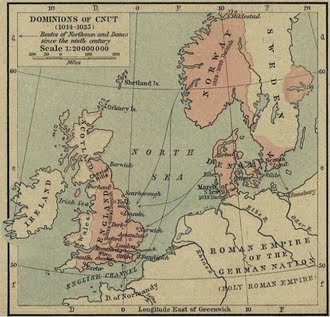 The history of Cornwall begins with the pre-Roman inhabitants, including speakers of a Celtic language that would develop into Brythonic and Cornish. Cornwall was part of the territory of the tribe of the Dumnonii which included Devon and parts of Somerset. After a...
The history of Cornwall begins with the pre-Roman inhabitants, including speakers of a Celtic language that would develop into Brythonic and Cornish. Cornwall was part of the territory of the tribe of the Dumnonii which included Devon and parts of Somerset. After a...